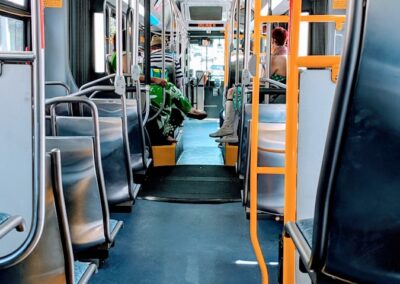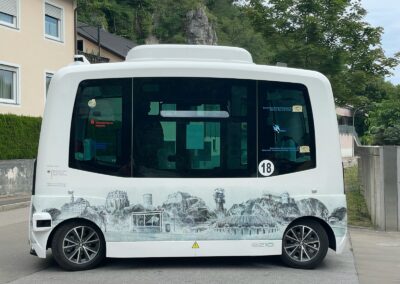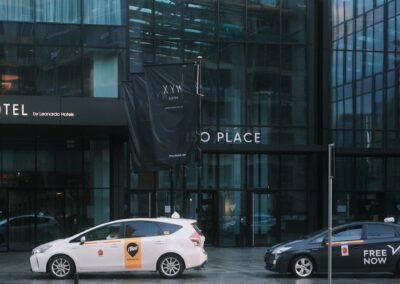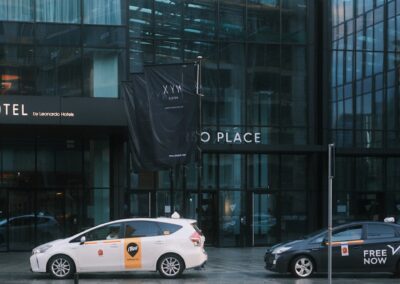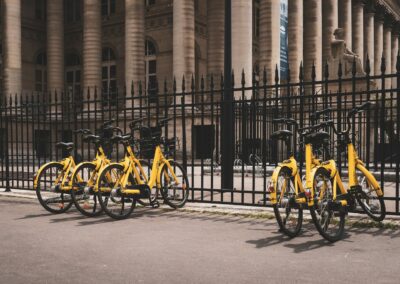The Impact of Public-Private Partnerships on E-Scooter Programs
Fostering Innovation through Collaboration
Public-private partnerships (PPPs) have been instrumental in the success of urban mobility innovations, such as e-scooter programs in cities like Paris. These collaborations bring together the strengths of both sectors: the public sector’s regulatory framework and oversight capabilities and the private sector’s innovation, efficiency, and investment potential. By working together, these entities can create and implement innovative mobility solutions that meet the evolving needs of urban populations. In cities like Riyadh and Dubai, leveraging PPPs can help introduce and scale up e-scooter programs, enhancing urban mobility and reducing congestion. Such partnerships ensure that the initiatives are well-regulated, sustainable, and aligned with broader urban development goals.
Enhancing Regulatory Compliance and Safety
One of the significant advantages of public-private partnerships in urban mobility is the enhancement of regulatory compliance and safety. E-scooter programs in Paris, for example, have benefited from stringent safety standards and regulations enforced by the public sector, while the private sector has focused on innovation and user experience. This dual approach ensures that e-scooter programs operate within a safe and legal framework, protecting both users and the public. In Saudi Arabia and the UAE, similar regulatory frameworks can be developed through PPPs to ensure that e-scooter programs are safe, efficient, and beneficial for the urban environment. By setting clear guidelines and monitoring compliance, these partnerships can mitigate risks and enhance public trust in new mobility solutions.
Driving Economic and Social Benefits
Public-private partnerships also drive significant economic and social benefits. In Paris, e-scooter programs have created new job opportunities, boosted local economies, and provided affordable and flexible transportation options for residents. For Riyadh and Dubai, PPPs can replicate these benefits by fostering local entrepreneurship and innovation. Additionally, these programs can reduce traffic congestion and pollution, contributing to cleaner and more sustainable cities. By integrating e-scooter programs into the broader urban mobility ecosystem, cities can enhance connectivity, improve quality of life, and support sustainable urban development. The economic and social impact of these programs underscores the importance of strategic partnerships in achieving long-term urban mobility goals.
Effective Change Management and Leadership
Implementing urban mobility innovations through public-private partnerships requires effective change management and strong leadership. The transition to new mobility solutions involves significant changes in infrastructure, operations, and public perception. In Paris, successful e-scooter programs have been supported by proactive leadership and comprehensive change management strategies. For cities like Riyadh and Dubai, executive coaching services can equip leaders with the skills needed to navigate these changes. Coaching can enhance their ability to communicate effectively, build consensus, and manage resistance to change. By focusing on leadership development and strategic management, these cities can ensure the successful implementation of e-scooter programs and other urban mobility innovations.
Leveraging Advanced Technologies for Enhanced Mobility
The integration of advanced technologies such as Artificial Intelligence (AI), Blockchain, and the Internet of Things (IoT) is crucial for the success of urban mobility innovations. In Paris, AI is used to optimize e-scooter distribution and predict maintenance needs, while Blockchain ensures secure and transparent transactions. Similarly, IoT devices provide real-time data on scooter usage and location, enhancing operational efficiency. In Riyadh and Dubai, adopting these technologies can optimize the performance and sustainability of e-scooter programs. Advanced technologies enable data-driven decision-making, improve user experience, and ensure the reliability and security of mobility services. By embracing innovation, these cities can create smart, efficient, and sustainable urban mobility systems.
Promoting Business Success through Public-Private Partnerships
Public-private partnerships not only enhance urban mobility but also promote business success. In Paris, e-scooter companies have thrived through partnerships with local governments, benefiting from regulatory support and market access. For businesses in Riyadh and Dubai, engaging in PPPs can open new opportunities for growth and innovation. Management consulting firms can provide valuable insights into how businesses can effectively participate in and benefit from these partnerships. By aligning business strategies with public goals, companies can contribute to the development of sustainable urban mobility solutions while achieving their commercial objectives. This synergy between public and private sectors drives economic growth and supports the broader vision of smart and sustainable cities.
#PublicPrivatePartnerships #UrbanMobility #EScooterPrograms #SaudiArabia #UAE #Riyadh #Dubai #ArtificialIntelligence #Blockchain #TheMetaverse #ExecutiveCoaching #ManagementConsulting #GenerativeAI #LeadershipSkills #ProjectManagement













